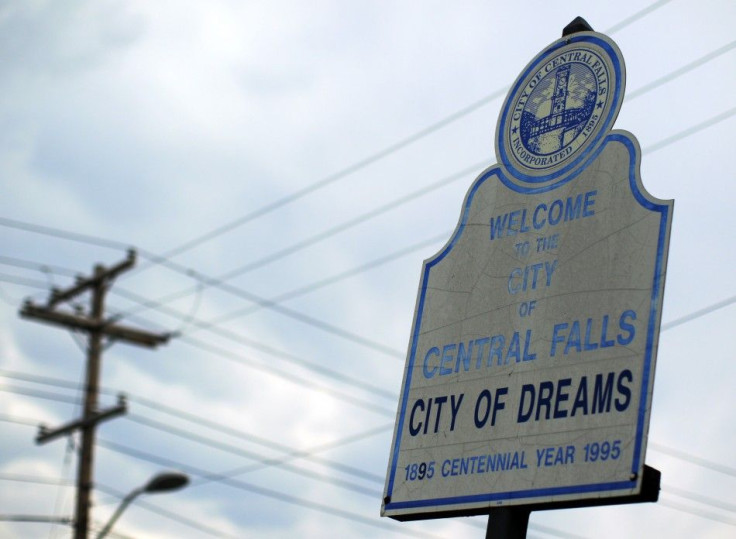Rhode Island's Central Falls files for bankruptcy

Central Falls, Rhode Island, one of a handful of U.S. cities and counties facing fiscal collapse in the wake of the economic recession, filed for a rare Chapter 9 bankruptcy on Monday.
The bankruptcy filing, a risky and potentially expensive move that could freeze the city out of the U.S. municipal bond market, marks a symbolic blow as state and local governments struggle to pull themselves out of the recession.
The smallest city in the smallest U.S. state made the filing as it grappled with an $80 million unfunded pension and retiree health benefit liability that is nearly quadruple its annual budget of $17 million.
"This is a wake-up call for other struggling towns," said Eileen Norcross, a senior research fellow at the Mercatus Center at George Mason University. "States should be looking at Rhode Island and saying, 'How can we avoid this?"
Still, dire predictions of mass municipal defaults made late last year by Wall Street analyst Meredith Whitney have not come to pass. A string of failures could rattle the $2.9 trillion U.S. municipal debt market.
The Central Falls filing was not the start of a "huge nation-wide trend", said Adam Stern, a vice president at Boston-based Breckinridge Capital Advisors, a municipal bond investment firm.
"A bankruptcy filing is sort of an endgame over years and years of economic distress, so it's not something your typical U.S. town or city is likely to experience anytime soon," he said.
There have been only 624 municipal bankruptcies under Chapter 9 of the U.S. Bankruptcy Code since 1937, with five occurring last year, according to James Spiotto, a municipal bankruptcy expert at the law firm Chapman and Cutler. For graphic see: r.reuters.com/kyb92s
Alabama's Jefferson County is currently working to ward off the largest municipal bankruptcy in U.S. history stemming from its $3.2 billion sewer bond crisis. The Pennsylvania state capital of Harrisburg, which has about $300 million incinerator debt, is also considering bankruptcy.
Those cases lead some to take a pessimistic view on the future of municipal bankruptcies in the United States.
"Chapter 9 has been a fairly unusual event but we and many others think that's not necessarily going to be the case going forward," said Sean Scott, a municipal bankruptcy expert at law firm Mayer Brown.
"THE BIG ASK"
In Central Falls, a city of just 19,000 located six miles from the state capital of Providence, residents reacted to the news with disappointment and resignation.
The big question on their minds was if another nearby town, like neighboring Pawtucket, or the state itself would take over their city.
"I'd be curious as to who's going to take it over. Someone has to, but no one wants to," said Dan Mercure, 48, on a break from his job at an auto parts store. "It's going to hurt business, it's all mom and pop stores here."
Ulysses Ortiz, a 50-year-old retiree, said whatever budget cuts will be imposed would hurt residents, who have already borne the brunt of heavy budget cutting.
"It's too bad, because Central Falls has always been a progressive city," said Ortiz. He added that he hoped the city would not be absorbed by one of its neighbors. "We've been here for more than a century," he said.
Central Falls, which has been under state control since July 2010, has $21 million of outstanding debt, Moody's said.
State officials worked to avoid a municipal bankruptcy filing, saying it could upset Rhode Island's other fragile localities.
Earlier this year, the state passed a law that guarantees bondholders will be paid before a distressed city like Central Falls deals with its other obligations. It was not immediately clear whether the law would hold up in bankruptcy court.
Rhode Island Governor Lincoln Chafee said the situation is "dire" and requires "decisive" action.
"Everything was done to avoid this day," said Central Falls' state-appointed receiver, retired judge Robert Flanders, Jr. "Taxes have been raised to the maximum level allowable. We negotiated with...the police and fire unions, without success, attempting to reach voluntary concessions, and we tried in vain to persuade our retirees to accept voluntary reductions in their benefits," he said.
© Copyright Thomson Reuters 2024. All rights reserved.











